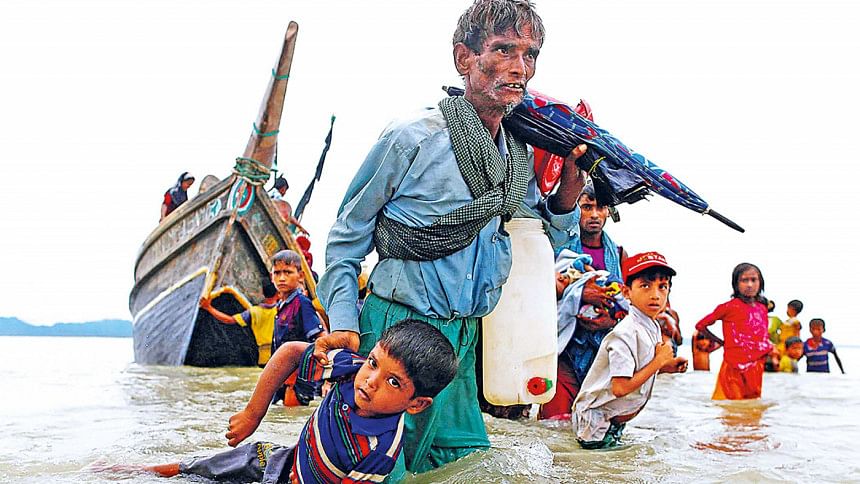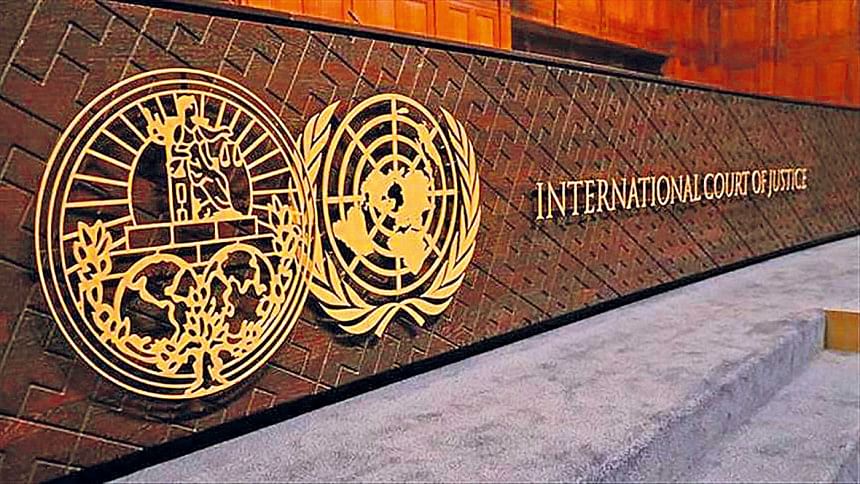The ICJ Judgment (Preliminary Objections) of the Rohingya Genocide Case

All the judges including the Myanmar-nominated Judge ad hoc Claus Kress were against Myanmar's positions in respect of Myanmar's first, third and fourth objections. Judge Xue voted in favour of Myanmar in respect of the second objection and overall position of the Judgment.
Interestingly, Judge Xue took a similar position in respect of the obligation erga omnes partes in the Belgium v Senegal case.
Though an application raising preliminary objections is classified as an "incidental proceeding" before the International Court of Justice (ICJ), its outcome is very crucial in determining the prospects of a case before it. A positive outcome of the preliminary objections leads to the termination of a case. In international adjudication, an allegation of international law violations is not sufficient. The existence of jurisdiction between the disputant States, and the admissibility of such litigation are the points of departure. Thus, the ICJ's decision of the preliminary objection bears the title of "Judgment", not "Order".
The preliminary objections stage of The Gambia v Myanmar case (or the Rohingya Genocide case) was very crucial. In this case, The Gambia was not an "affected" State. Most importantly, The Gambia relied on Article IX of the Genocide Convention 1948 as a jurisdictional basis and claimed that the Convention contains an obligation erga omnes partes. The obligation erga omnes partes denotes "an obligation under a multilateral treaty that a State party to the treaty owes in any given case to all the other States parties to the same treaty, in view of their common values and concern for compliance, so that a breach of that obligation enables all these States to take action." (Article I, The Institute of International Law Resolution on Obligations Erga Omnes in International Law, 2005 Krakow Session). Though the Belgium v Senegal case relied on this principle in respect of the UN Convention against Torture 1984, its application in respect of the Genocide Convention was not judicially confirmed in earlier instances. Thus, the outcome of this Judgment was paramount to advancing justice for the Rohingya before the ICJ.

In this case, Myanmar raised four preliminary objections. Most of the objections were not unexpected. In the hearing of the application for provisional measures, Myanmar raised similar objections. First, it claimed that The Gambia is acting as a proxy of the OIC, an international organisation, and since the ICJ's contentious jurisdiction is restricted to the States, there is no jurisdiction. The Court held that the support from an intergovernmental organisation to a State in order to institute a proceeding does not deprive that State of the status of a litigant. Alternatively, Myanmar claimed that The Gambia is abusing the process. The ICJ rejected such a claim on the ground of lack of evidence. Second, Myanmar claimed that a "non-injured" State cannot institute a proceeding under Article IX of the Genocide Convention. It argued that such a State must be "specially affected", and the case must be brought according to the rule of nationality. It further argued that Bangladesh's reservation to Article IX bars all the non-injured States to institute a proceeding. In rejecting such objection, the Court held that such a State does not require to be "specially affected". It also found that the rule relating to nationality is irrelevant in respect of a case under the Genocide Convention. Furthermore, it held that it does not need to address Myanmar's argument on Bangladesh's reservation to Article IX.
Third, Myanmar argued that its reservation on Article VIII of the Genocide Convention bars the ICJ from exercising its jurisdiction in this case. Myanmar submitted that "the competent UN organs" mentioned in Article VIII include the ICJ and a reservation on it deprives the Court of the jurisdiction. However, the Court held that Article VIII of the Genocide Convention deals with the political organs of the UN, while Article IX deals with its judicial organ.
The fourth preliminary objection was related to the existence of a dispute. The ICJ cannot exercise its jurisdiction over a proceeding unless there exists a dispute at the date of the institution of such a case. Myanmar claimed that The Gambia failed to meet two requirements of a dispute: a certain degree of certainty and mutual awareness. In response, The Gambia argued that though Myanmar set a high standard for establishing a dispute, it met both of such requirements. In its decision, the ICJ found that a dispute has been crystallised between the disputants.
This decision is remarkable from another aspect. It attracted a virtual unanimity of the Bench. It is a very rear incident before the ICJ. All the judges including the Myanmar-nominated Judge ad hoc Claus Kress were against Myanmar's positions in respect of Myanmar's first, third and fourth objections. Judge Xue voted in favour of Myanmar in respect of the second objection and overall position of the Judgment. Interestingly, Judge Xue took a similar position in respect of the obligation erga omnes partes in the Belgium v Senegal case.
However, the proceeding now moves to the merit stage. Now, the ICJ will adjudicate The Gambia's claims of the alleged violations of the Genocide Convention and uphold the reparations claimed by The Gambia in case of its positive findings. This case bears a certain novelty in comparison with earlier genocide cases. In its earlier two cases against Serbia brought by Bosnia and Herzegovina (2007) and Croatia (2015), there was an UN-mandated international tribunal and the victims were litigating States' nationals. As a result, the Court was relieved from examining many other issues. But in the present case, there are no instances of proper genocide prosecution at both national and international levels. And the alleged victims are the nationals of the Respondent. It will allow the ICJ to revisit many issues from a different perspective.
The writer is a Lecturer (on Study Leave) at American International University-Bangladesh and currently studying International Law at Université Catholique de Louvain, Belgium.

 For all latest news, follow The Daily Star's Google News channel.
For all latest news, follow The Daily Star's Google News channel. 



Comments